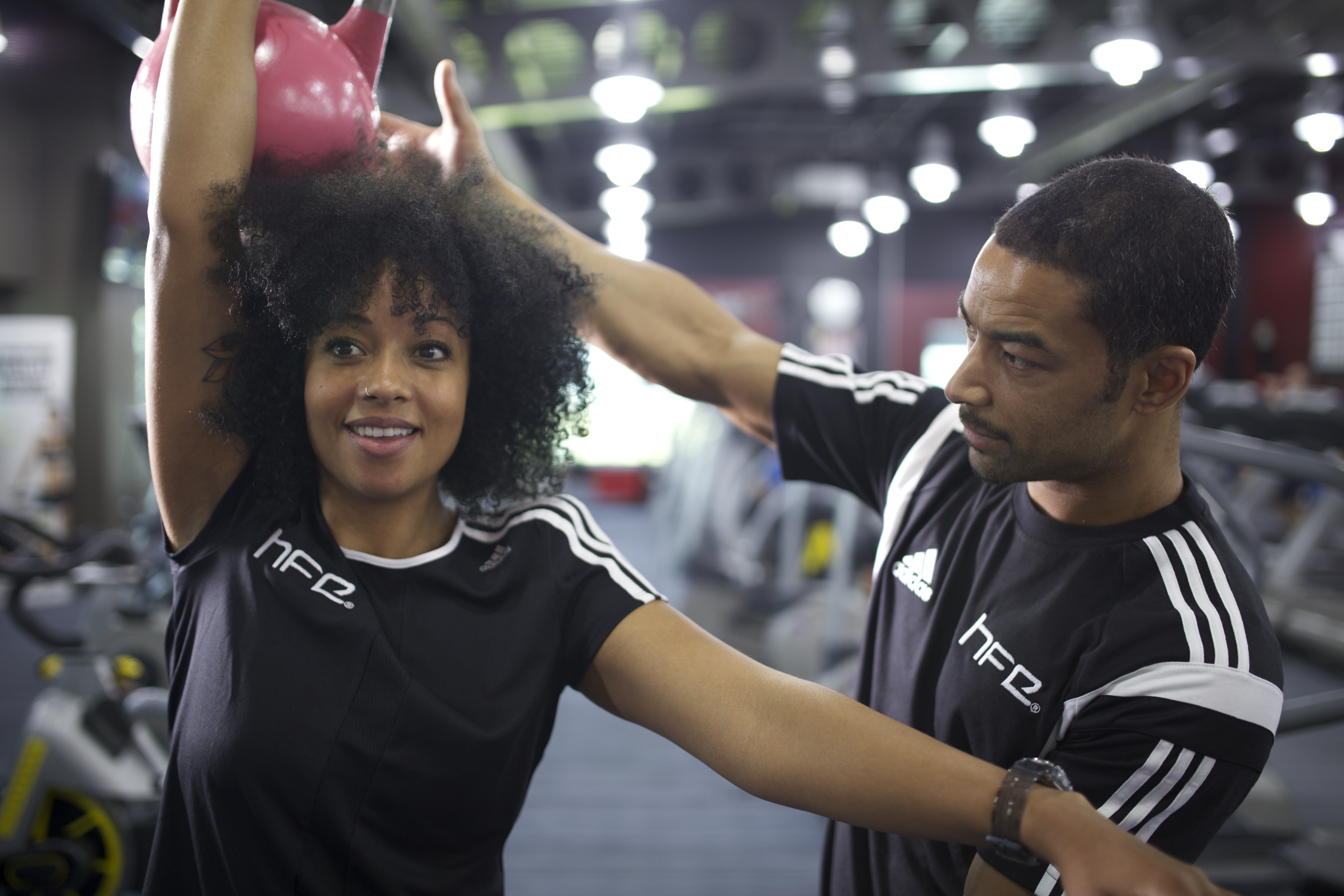Build Rapport with Clients
As a personal trainer, one of the most crucial steps to success is establishing trust and loyalty with potential and new clients. Many trainers choose this career path from an outpouring of passion for fitness as it relates to personal success and happiness, coupled with the desire to help others achieve the same. But what may seem not so obvious is that a personal trainer is also a salesperson. Trainers don’t sell a product; they sell themselves. A lack of self-confidence or belief that the service is of high value won’t convince potential clients of the worth of personal training. Thus, interpersonal relations is a skillset that a trainer can never undervalue.
A great way to build people skills is by listening well to what a client is communicating. Read body language and non-verbal cues to determine the emotions behind the words. Foster a relaxed environment to help the client feel as comfortable as possible. Remember that people have very personal reasons for wanting to get fit and healthy. These reasons may be masked by external motives, such as “I want to look better in a swimsuit,” or “I have a wedding next summer,” but really, clients are seeking a better lifestyle. It helps to ask the right questions and get clues to those real reasons, but it may take time and relationship building for that truth to be revealed.
Don’t forget that clients are people – real, working people – with all the concerns life brings. Busy lifestyles, high-stress jobs, and a desire to spend more time with family all compete as priorities. Clients have limited time and energy, and most see being fit as a way to enhance quality of life and help balance everything by feeling better, looking better and living healthier. You only have to look at the UK’s top personal trainersto understand each PT has a unique blend of education, personal experience and training experience that can be used to relate to others in that same field. Relatability helps build trust, rapport and credibility among clients.
A trainer with good relational skills can show concern to clients through words and actions. Communicate care for their health and well-being and demonstrate passion by using all available knowledge and resources to help them achieve their goals. Most potential clients have probably tried reaching their goals on their own already. Meeting with a personal trainer is the first step in considering another way by enlisting the help of a professional. And more than likely, help is needed, whether that’s by way of accountability, a detailed training programme, or just having someone who’s in their corner. Many times, clients’ reasons for seeking help can be found simply by asking. Knowing their true desires helps a trainer relate to and appropriately communicate how to help clients.
Once a contractual agreement with a new client has been reached, the work has just begun. A trainer must prove that what was communicated during the initial meeting is what will actually be delivered. The trainer can constantly encourage clientele and remind them how each of the parts of the programme and workout sessions are part of the big picture of working towards their goals. By maintaining discretion with the details and information clients share, trainers can build trust. Listening thoroughly and offering sound advice accordingly helps reassure the clients that they made a good choice in deciding to work with a personal trainer. Loyalty, trust and rapport result from the constant process of convincing the clients that they really need a trainer and a fitness programme, and that their current trainer and programme are meeting those needs in the most efficient way possible.
Written by Josh Douglas-Walton, a writer for HFE, the UK’s leading provider of personal trainer courses and fitness qualifications.
Josh Douglas-Walton // Content Marketing Executive
t: 01772 440314 // e: josh@hfe.co.uk // w: www.hfe.co.uk
Build Rapport with Clients
As a personal trainer, one of the most crucial steps to success is establishing trust and loyalty with potential and new clients. Many trainers choose this career path from an outpouring of passion for fitness as it relates to personal success and happiness, coupled with the desire to help others achieve the same. But what may seem not so obvious is that a personal trainer is also a salesperson. Trainers don’t sell a product; they sell themselves. A lack of self-confidence or belief that the service is of high value won’t convince potential clients of the worth of personal training. Thus, interpersonal relations is a skillset that a trainer can never undervalue.
A great way to build people skills is by listening well to what a client is communicating. Read body language and non-verbal cues to determine the emotions behind the words. Foster a relaxed environment to help the client feel as comfortable as possible. Remember that people have very personal reasons for wanting to get fit and healthy. These reasons may be masked by external motives, such as “I want to look better in a swimsuit,” or “I have a wedding next summer,” but really, clients are seeking a better lifestyle. It helps to ask the right questions and get clues to those real reasons, but it may take time and relationship building for that truth to be revealed.
Don’t forget that clients are people – real, working people – with all the concerns life brings. Busy lifestyles, high-stress jobs, and a desire to spend more time with family all compete as priorities. Clients have limited time and energy, and most see being fit as a way to enhance quality of life and help balance everything by feeling better, looking better and living healthier. You only have to look at the UK’s top personal trainersto understand each PT has a unique blend of education, personal experience and training experience that can be used to relate to others in that same field. Relatability helps build trust, rapport and credibility among clients.
A trainer with good relational skills can show concern to clients through words and actions. Communicate care for their health and well-being and demonstrate passion by using all available knowledge and resources to help them achieve their goals. Most potential clients have probably tried reaching their goals on their own already. Meeting with a personal trainer is the first step in considering another way by enlisting the help of a professional. And more than likely, help is needed, whether that’s by way of accountability, a detailed training programme, or just having someone who’s in their corner. Many times, clients’ reasons for seeking help can be found simply by asking. Knowing their true desires helps a trainer relate to and appropriately communicate how to help clients.
Once a contractual agreement with a new client has been reached, the work has just begun. A trainer must prove that what was communicated during the initial meeting is what will actually be delivered. The trainer can constantly encourage clientele and remind them how each of the parts of the programme and workout sessions are part of the big picture of working towards their goals. By maintaining discretion with the details and information clients share, trainers can build trust. Listening thoroughly and offering sound advice accordingly helps reassure the clients that they made a good choice in deciding to work with a personal trainer. Loyalty, trust and rapport result from the constant process of convincing the clients that they really need a trainer and a fitness programme, and that their current trainer and programme are meeting those needs in the most efficient way possible.
Written by Josh Douglas-Walton, a writer for HFE, the UK’s leading provider of personal trainer courses and fitness qualifications.
Josh Douglas-Walton // Content Marketing Executive
t: 01772 440314 // e: josh@hfe.co.uk // w: www.hfe.co.uk


